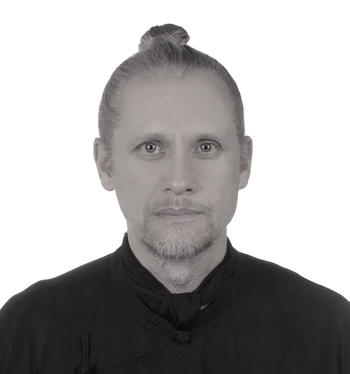Prof. Dr. Fabian Heubel

Fellow in the project "A Translingual Conceptual History of Chinese Worlds" (October–December 2021)
Short Biography
Fabian Heubel studied sinology, philosophy and botany at Goethe-University, Frankfurt/Main, Germany. His master thesis in sinology focused on the transcultural and contemporary significance of classical Confucian conceptions of self-cultivation. His dissertation in philosophy at TU Darmstadt turned to the late Michel Foucault and the idea of a critical theory of self-cultivation. He has published a Chinese book on the transcultural significance of Foucault’s research in ancient and modern practices of the self has been published in Taiwan in 2021. In recent years he has worked in the field of “transcultural Zhuangzi-studies” and on the relation between Critical Theory, Martin Heidegger and Daoism (his book “Gewundene Wege nach China. Heidegger-Daoismus-Adorno” [“Twisted Ways to China. Heidegger-Daoism-Adorno]” has been published in 2020). Another German book with the title „Was ist chinesische Philosophie? Kritische Perspektiven“ (What is Chinese Philosophy? Critical Perspectives) has been published in 2021.
Since 2001 Heubel is working at the Institute of Chinese Literature and Philosophy, Academia Sinica (Taipei), since 2013 as Research Fellow. He is also frequently teaching at the Institute of Philosophy at Goethe-University in Frankfurt/Main. His main research interests are in classical and contemporary Chinese philosophy, interpretations of Chinese philosophy in Western sinology, Critical Theory, contemporary German and French thought, and philosophy of art.
Project
World and self-transformation in Daoist thoughtFabian Heubel is working on a philosophical translation and commentary of selected chapters from the Laozi (or Daodejing) aiming to explore the translingual dynamic between the Chinese and the German language through a study of existing translations of the Daoist classic. Firstly, his research looks at how translations provide access to the world of Daoist thought for German readers through the creation of “concepts” (gàiniàn 概念) against the background of the translation of the German philosophical language into Chinese. Secondly, for his translation and interpretation of the Laozi, the diversity of internal Chinese perspectives allows a critical reconsideration of existing translations into German and other Western languages. The immensely rich Chinese commentarial tradition offers invaluable insights into the transformations of the Laozi and the Daoist worldview. Thirdly, drawing on a variety of Chinese and European texts and contexts, Heubel experiments with transcultural correspondences that situate the Laozi in the temporal and spatial dynamics of antiquity and modernity, East and West. In this way, he attempts to further the communication between classical Chinese and contemporary philosophy.
